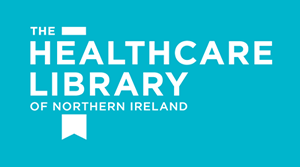Resource Development and Management Policy
The guidance in this document refers only to the Healthcare Library of Northern Ireland.
1. Overview
The Healthcare Library of Northern Ireland aims to provide access to high quality Library
resources to support the Health & Social Care Professionals of Northern Ireland to deliver
patient care, CPD, revalidation and research.
This Policy outlines the principles of resource development and management as well as the
general criteria used by the Library to assess the collection. It also explains the budget
allocation and acknowledges that the Library needs to manage the pressure on space whilst
continuing to support practice and research.
2. Principles
• The Healthcare Library of Northern Ireland will purchase materials to support the
Health & Social Care Professionals of Northern Ireland to deliver patient care, CPD,
revalidation and research.
• The Library will balance the size of its physical collections with the need to provide
sufficient study space.
• Digital format is the preferred option for books, journals and resources, where
appropriate, affordable, practicable, and where funds are available
• The Library will take a data informed approach, monitoring the use of resources
and employ usage data when available to evaluate continuing provision.
• Resource development and management involves Library staff working with the
healthcare community.
3. Budget Allocation
The Healthcare Library budget is set by the Department of Health (NI). The annual resource
budget is approximately £500,000 with costs increasing between 4% to 6% each year. The
annual budget allocation is not generally increased each year therefore any changes to
subscriptions must be funded by cancellations.
The budget for the purchase of books is allocated annually.
The interlibrary loan service is used to supplement local resources.
4. Resource Development
This section summarises approaches to development of Library resources.
4.1 Books and E-books
The choice of format of book (e or print) is decided by the Subject Specialists, on the basis of
availability, access, value for money and availability of funds.
Print copies may be distributed and moved across locations according to identified demand.
4.2 Journals and Databases
Journals and databases represent an expensive and ongoing commitment. The majority of
journals are now available in electronic format as part of publisher deals or as individual
titles.
Subscriptions to journals and databases are reviewed annually.
New subscriptions are made only where savings to an equivalent level are identified.
In the event of a budget reduction, The Library Advisory Group will be informed and
consulted regarding cancellation decisions.
4.3 Donations
The Healthcare library of Northern Ireland adheres to Queens University Belfast’s
Donations Policy. This is available on the QUB Library website.
5. Resource Management
This section summarises the approach to management of the Library collections.
5.1 Stock Checks
An ongoing programme of stock checks is carried out whereby material on the shelves is
checked against what is recorded in the Library catalogue. Missing books may be replaced if
relevant to current HSC requirements, but otherwise records for missing items are
withdrawn from the catalogue.
5.2 Criteria for Withdrawal and Retention
The ongoing pressure on space and the need to support current HSC priorities and
requirements, means that material is periodically withdrawn from the Library collection.
The Library uses the following criteria as a guideline to assess the Collection:
• Relevance to current HSC priorities and requirements
• Level of usage
• Duplication within the Library
• Currency of the edition
• Availability of electronic equivalents, for example, print journals where access to
electronic archives is secure
• Physical condition
• Rarity in the UK
Stock for disposal will be identified according to these criteria during regular stock
assessment and be disposed of via BetterWorldBooks UK.
6. Policy Review
Changes to this policy will be made in the light of new developments, emerging disciplines
and evolving trends. It will be reviewed on a regular basis to ensure that it continues to
reflect the priorities of HSC.
Updated January 2024
